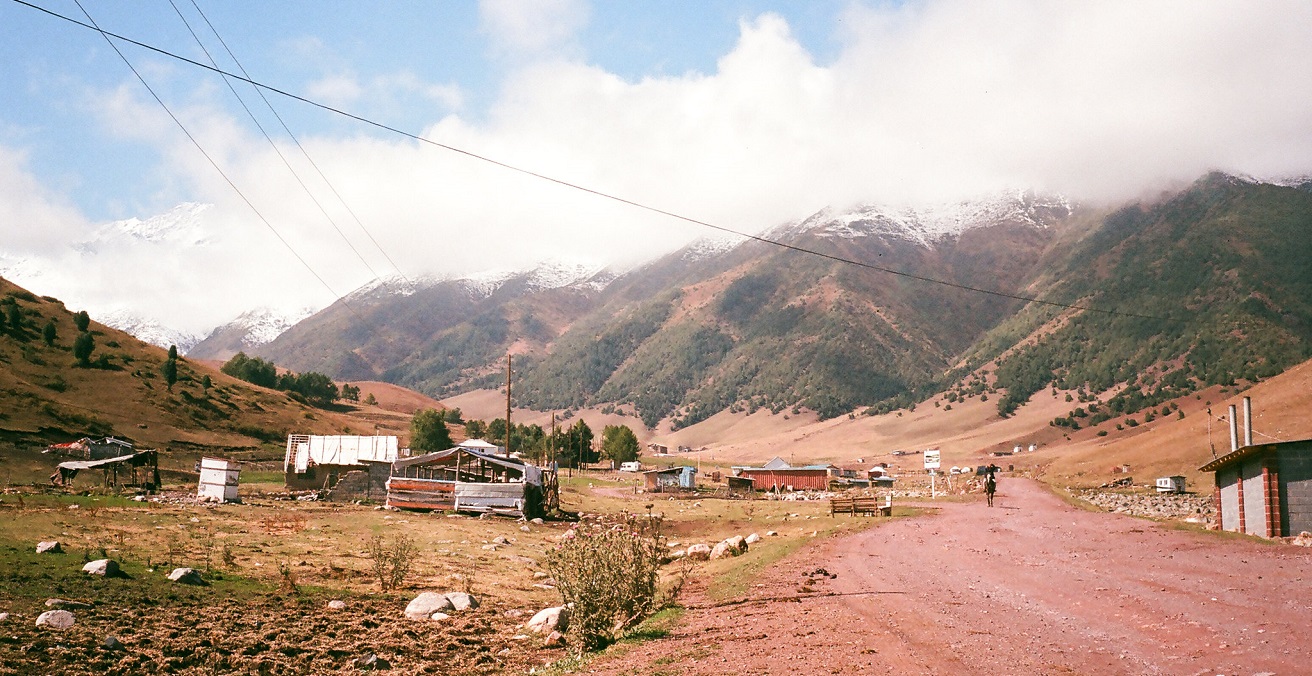China’s Debt Trap Diplomacy in Kyrgyzstan

The countries of former Soviet Central Asia have traditionally looked to China as their “bank” to fund regional infrastructure projects. However, debt sustainability is becoming a serious issue throughout Central Asia.
Debt sustainability has become a particular issue in Kyrgyzstan, whose state debt is reportedly at US$5 billion with over 40 percent owed to the Export-Import Bank of China. China’s Belt and Road Initiative (BRI) spending has raised serious concerns, with a 2018 Center for Global Development report deeming Kyrgyzstan to be at “high risk” of debt distress due to BRI loans. Kyrgyzstan is located on the crossroads of Eurasia, a region which is seen by China as the heart of its BRI program, and thus is the beneficiary of large Chinese-funded infrastructure projects.
COVID-19 has heavily impacted the Kyrgyz economy, with exports to China falling 47 percent and its GDP dropping by 8.6 percent in 2020. In 2019, Kyrgyzstan’s main export destinations were the United Kingdom and Kazakhstan, with gold and precious metal ore making up the percentage of its exports. However, products from China made up 53 percent of Kyrgyzstan’s imports, highlighting the trade imbalance between both countries. Being this far in the red with China has brought difficult questions to the fore for top officials in Kyrgyzstan about how to manage this debt. Kyrgyz President Sadyr Japarov reportedly noted that if the debts weren’t paid, “we will lose many of our properties.” Transferring large Chinese-funded enterprises and infrastructure projects back to Chinese banks would result in a major loss of prestige for both the government and the country. Such a political scandal would result in further destabilising protests throughout the country.
During his candidacy, Japarov publicly discussed the possibility of selling mining rights to the Jetim-Too ore mine to pay off these outstanding debts. The sale of critical and strategic industries to a foreign power is never a popular option. Therein lies the aforementioned trap of China’s BRI, which has affected many countries in Central Asia and elsewhere.
Regardless of the current economic realities, Kyrgyzstan’s loans still need to be repaid. The Kyrgyz Ministry of Finance has admitted that according to agreements signed by the previous administration, led by Almazbek Atambayev, the Exim Bank of China has the right to demand reimbursement of the entire amount of the loan in case of late repayments. Unpopular proposals from Deputy of the Social Democratic Party of Kyrgyzstan Jogorku Kenesh, as well as the chairperson of the public association Council of Women, Ainuru Altybaeva, included calling for a public fundraising campaign to pay off the debt. In a country which has suffered decades of corruption and mismanagement of funds, it is unlikely that these proposals will garner much in the way of sympathy from a weary public further affected by COVID-19.
The impact of this debt is not limited to domestic issues. Kyrgyzstan’s foreign policy has been shaped by its relationship to China. In Xinjiang, in addition to the Uyghur people, there are a significant number of ethnic Kyrgyz in re-education camps. Yet while Kyrgyz domestic opinion to these camps is unified in its condemnation, Kyrgyz government officials have tried to avoid mentioning the issue at all. This is due to a desire to avoid any negative impact on diplomatic relations between China and Kyrgyzstan. In December 2018, the then-President Sooronbai Jeenbekov announced that “Kyrgyzstan cannot interfere in the internal affairs of China.” It is clear Kyrgyzstan is anxious not to raise the ire of the Chinese Communist Party, providing an example of the pressure the country is under to ensure continued Chinese investment in the country.
Additionally, racism and anger towards Chinese people in Kyrgyzstan have started to rise in response to the debt trap situation that the country finds itself in. Polling data in Kyrgyzstan has revealed highly negative attitudes towards Chinese businesses in the country. This has been reflected in actions against Chinese workers in the past. In 2019, a fight took place between locals and workers at the Solton-Sary gold mine, operated by the Chinese firm Zhong Ji Mining Company. The outburst reportedly responded to allegations of the mine poisoning the environment.
In another instance, violence surged immediately following the 2020 Kyrgyz Parliamentary elections as a response to insinuations of vote buying and other electoral fraud, setting the stage for further violence between Kyrgyz citizens and Chinese workers. This violence saw extreme tensions, with some men holding assault rifles demanding a $350,000 protection fee from a Chinese oil refinery in Kara-Balta. In the wake of the violence, then-Acting Kyrgyz Prime Minister Artem Novikov guaranteed the protection of Chinese investments during a meeting with the Chinese ambassador to Kyrgyzstan, Du Dewen. In China, Kyrgyzstan’s ambassador, Kanaiym Baktygulova, was summoned to meet with Cheng Guoping, the external security commissioner at the Chinese Foreign Ministry. The significance of this summons cannot be understated, as it demonstrates the strong concern which China feels for the safety of its BRI investments in Kyrgyzstan.
While Kyrgyzstan’s debt is relatively small for a country like China, it is unlikely at this stage for there to be widespread debt forgiveness in the region. Any form of debt relief is likely to be tied to future infrastructure projects. If Kyrgyzstan still cannot pay back its debts to China, it is likely that major infrastructure projects like the Bishkek thermal power plant, the North-South alternate highway, and the Datka-Kemin power transmission line could be transferred to Chinese management.
China is conscious of the decision it faces, whereby it must choose whether to maintain its reputation as a “friendly neighbour” to Central Asian states or to drop the façade and move forward with the seizure of foreign state assets. For Kyrgyzstan, either choice presents a catch-22 situation, where the country’s foreign policy independence and even its sovereignty is at risk of being subsumed by China.
Jonathan Eales currently works as a research analyst at the Strategic Intelligence Research Group @StratInt_RG based in Canberra. His primary research interests cover Russian foreign and defence policy, post-Soviet Central Asia, and North-East Asia. He completed a double Masters at Macquarie University in International Security Studies and Policing, Intelligence & Counter-Terrorism.
This article is published under a Creative Commons License and may be republished with attribution.





